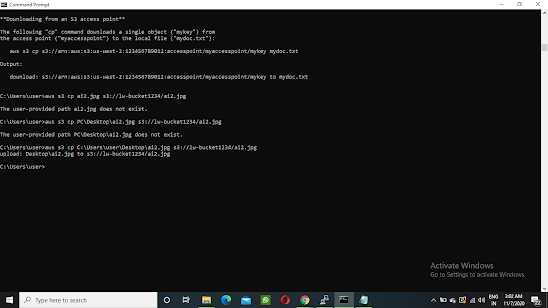Create High Availability Architecture With AWS CLI
Architecture of website that gives high speed, low latency, guaranteed data availability and durability to the client.
Doing practical is so simple but designing it/ architect it for proper use case is not that much easy. You should know everything.
To create this architect on AWS CLI, we need some simple steps:
1 - Launch ec2 instance
We've launched an ec2 instance, Amazon Linux 2 AMI in ap-south-1a
2 - Create an EBS Volume
so we've created an EBS Volume of 1GiB in ap-south-1a as region of instance and EBS volume should be same.
4 - Install Apache web server in our instance
Here we can see that httpd is installed.
5 - Create partition in EBS Block Device and mount with Document Root.
By this, we made our document root persistent.
We won't loose our data and code if root device corrupts.
6 - Create S3 Bucket
Bucket created!!
7 - Copy the file/image to the bucket
As we all know about the durability and accessibility of data in S3, Aws provide 99.99999999999% durability of data and
99.99999% accessibility of data to it's customer. So here loosing data is as far-fetched as comet hitting the earth.
We won't loose our data!!
8 - Setup Content Delivery Network using CloudFront
By using cloudfront, we can provide high speed and low latency to our client. As cloudfront works on CDN(content delivery network) , we can achieve high speed through amazon global private network connection.
CloudFront provides cache/local copy to the nearest edge location of users. By this, customers will connect only to the nearest edge location. Not directly to the main storage. Hence low latency achieved.
9 - Place the CloudFront URL on the Webapp code
Successfully created this High Availability Architecture!!















Waahhh... Yaar..mast hai.. 👌👌
ReplyDeleteThanks Mayank✌️
DeleteGirl u r doing great👌👌.....It's amazing 😊
ReplyDeleteTysm🥰
Delete